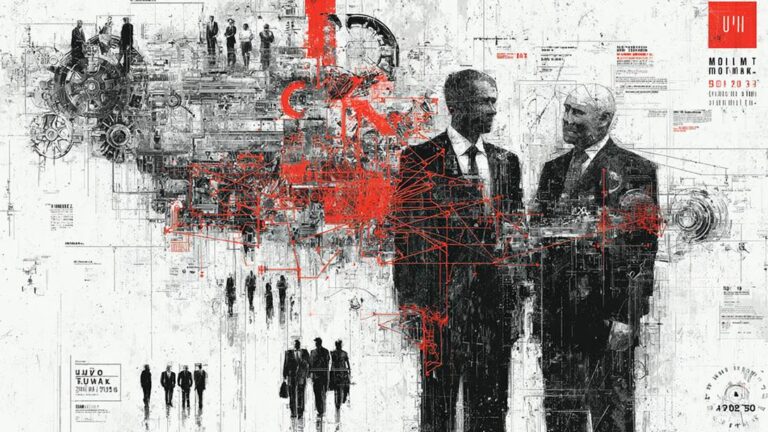America’s adversaries are preparing to flood social media with fake news through Inauguration Day. Prepare yourself.
If you think the public discord over the election will end after Election Day, think again. According to an intelligence bulletin declassified in October, US spies believe that China, Iran and Russia are “prepared to exploit opportunities” after the polls close.
Their focus will be to “conduct information operations denigrating US democracy through Inauguration Day.”
In non-bureaucrat-speak, that means foreign adversaries are working to stoke division in American society. They want to undermine our confidence in democracy with disinformation.
This disinformation may be especially dangerous if it is amplified by US candidates or their supporters. Donald Trump, for example, has spent four years falsely claiming that he won the 2020 election; this falsehood is now widely believed by two-thirds of Republicans. US democracy does not need a repeat.
When you know a storm is coming, it is best to be prepared. The best way to defend against this barrage of lies is to get ahead of them. In particular, there are four major claims that need to be prebunked:
Disinformation Claim #1: Voting by undocumented immigrants
CLICK HERE TO READ MORE FROM THE REPUBLICAN VOICE
According to the intelligence bulletin, Russian operatives have already posted allegations on social media about illegal voting by undocumented immigrants.
On Friday, officials called out a Russian video purporting to show Haitian immigrants bragging about voting illegally in Georgia.
This is a trope that was amplified by Trump and House Speaker Mike Johnson, but refuted by audits that show non-citizens are not voting in any significant numbers.
In fact, voter registration provisions are designed to screen out non-citizens, who are not allowed to vote in state or federal elections. And there are strong disincentives from casting a ballot illegally, including criminal prosecution and deportation.
There is simply no evidence that non-citizens are casting ballots in numbers sufficient to influence the outcome of a presidential election.
Disinformation Claim #2: Voting by dead people
The intelligence officials also warned that hostile foreign adversaries are spreading rumors of voting by “deceased individuals.” America’s adversaries seek to capitalize on claims made by Trump and his supporters in 2020 that votes were cast fraudulently by dead people.
In fact, FactCheck.Org says that ballots cast by deceased individuals are “exceedingly rare,” and usually the result of a voter dying between the time of an early or mail-in vote and Election Day.
Claims of dead people voting can arise from confusion between people with identical or similar names; there may be a John Smith who is dead, and another John Smith who is very much alive.
Russia promotes these claims to undermine public confidence in free and fair elections. Losing candidates assist the adversary’s efforts when they repeat these claims.
Disinformation Claim #3: Cheating by election officials
Another target is the vote-counting process. Russia has already fabricated claims of corrupt election officials, by, for example, Russia posting a video claiming to show election officials ripping up ballots for Trump in Pennsylvania. That video was viewed hundreds of thousands of times on X, the social media platform owned by Elon Musk.
Just as we saw misleading “evidence” of ballot-stuffing in the 2020 election, such as the routine delivery of ballots to counting centers, we should prepare for more of the same this time around.
In 2020, a video showed an election worker and her mother in Georgia passing an object that Trump lawyer Rudy Giuliani claimed to be a thumb drive used to manipulate the vote count. In fact, as we later learned during a congressional hearing, the object was a ginger mint.
Disinformation Claim #4: Cyberhacking of election results
In light of the number of voters who now cast ballots by mail, we’re unlikely to know the outcome of the election on Tuesday night. According to the intelligence bulletin, this delay creates an opportunity for adversaries to exploit.
Although the redundancies of paper ballots and the decentralized nature of our county-by-county voting systems make them highly resilient to cyber-attacks, we may see foreign actors stoke false concerns about the tabulation process.
They may post fake results to create the impression that the actual results were later corruptly altered. They may even falsely claim to have hacked into voting systems and tampered with the results to undermine trust in the election.
Assessing the validity of any claim requires critical thinking by asking ourselves foundational questions. What evidence supports this claim?
CLICK HERE TO READ MORE FROM THE REPUBLICAN VOICE
Is the evidence credible? Who is the source? What is their credibility? Is there a second source to support this claim? Why might the source be publishing this information? Why might the source be microtargeting me?
For candidates who care only about taking power and don’t care whether they actually have the most votes, it may be advantageous to amplify false claims.
But we should understand that such candidates are doing the bidding of Russia, China and Iran, even if unwittingly. And for those who care about democracy, it is always wise to verify a claim before we repeat it, lest we become an adversary’s useful idiot.
source: bloomberg.com/election-disinformation-how-to-pre-bunk-it-from-russia-iran-or-trump























